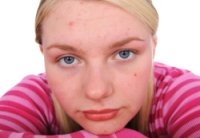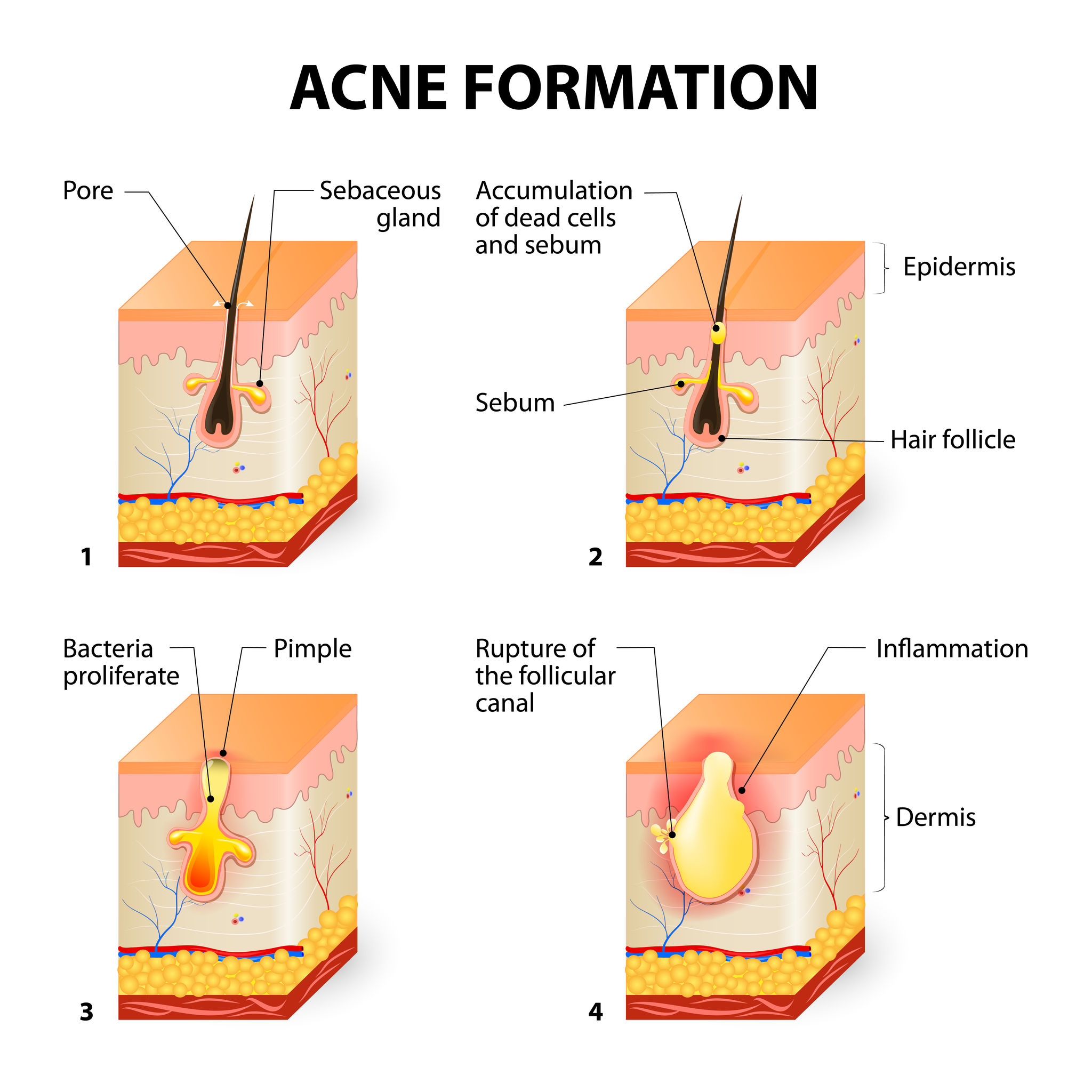What Is Acne and What Causes Pimples?

What is acne prone skin, and what makes people break out? These are some of the basic questions my clients ask when they come in for a skin care consultation.
To help you find the best treatment for your skin, we'll explore what acne is and what causes pimples.
We'll also discuss some related skin conditions that look and feel like acne to help you distinguish the difference.
What Is Acne Vulgaris?
Acne Vulgaris is the medical term for a hereditary skin disorder of the sebaceous glands and hair follicles. It's a chronic disorder without a cure that manifests as blackheads, bumps, pimples, and cysts. Learn more about the different types of acne.
Let's look at what happens in the pores of a person who has inherited acne prone skin.
- At puberty, our bodies start producing the hormone testosterone
- Testosterone stimulates enzymatic reactions in the pores & oil glands begin to produce sebum (oil)
- In acne prone skin, oil inside the pores sets off a condition called Retention Hyperkeratosis (RHK) which causes clogged pores. While normal, healthy pores shed one layer of dead skin cells per day inside the pore, acne-prone pores shed up to five layers of dead skin cells per day. RHK only happens if you’ve genetically inherited the tendency to develop acne, that's why we call it "acne prone skin".

Excessive Cell Build Up + Oil + Bacteria = Acne
- Too many dead skin cells start shedding off into your pores and combine with oil to form a waxy plug. This plug can grow to form a whitehead or a blackhead.
- Acne bacteria thrive inside the oily, sticky plug and irritate the pores.
- The plug may grow quickly, breaking open under the skin's surface. This causes inflammation which results in pimples, pustules, and cysts.
Despite what you may have heard, acne is NOT caused by dirty skin or "impurities" embedded in your pores. There's a lot of inaccurate and misleading information available about the causes of acne and the best ways to treat it.
Unfortunately, some of these acne myths may be preventing people from getting the help they need.
What Is Adult Acne?
Adult acne, blemishes, zits, hormonal flare ups, stress break outs . . .
I've heard all these names used, and whatever you want to call it -- It's all acne.
Many people think that problem skin only affects teenagers, and if they wait it out their acne will eventually go away on its own -- but this simply isn't true.
In fact, acne is one of the most common skin diseases, and it affects more than 60 million people in the United States alone.
Acne affects people regardless of age, gender or race. It commonly starts during puberty, but more and more people are breaking out later in life and finding it isn't just a "teenage problem" at all.
Despite the number of people suffering with acne prone skin, only about 11% of them actually seek help. The rest just go it alone hoping to stumble upon a solution.
This is unfortunate, because when acne is left untreated, it can cause physical scars, low self-esteem, and social withdrawal.
Acne-Related Skin Problems
There are several common skin conditions that may have you thinking you've got acne when it's really something else. The following conditions may look or feel like acne, but they're slightly different & they require specific treatment.
These conditions include:
- Rosacea or Acne Rosacea
- Milia
- Folliculitis
- Sebaceous Hyperplasia
- Keratosis Pilaris
- Perioral Dermatitis
- Staph Infection
It's important to get a skin analysis or assessment from a licensed skin care professional to find out exactly what skin conditions you have to help determine the best treatment strategies.